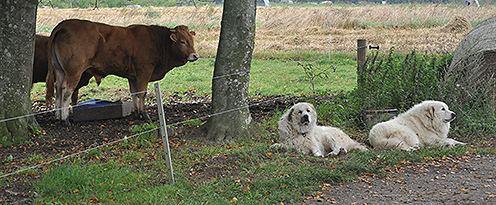AI and enzootic virus infections

The Consortium's core research areas include studies on influenza viruses in birds and pigs. The research is focused on the analysis of the factors that determine if a given influenza virus strain can infect humans (zoonotic aspects) and which characteristics determine whether it may cause severe illness and be easily transmitted.
Influenza virus research is essential for supporting proactive veterinary preparedness services and to keep an updated diagnostic portfolio in the Danish Veterinary Consortium, while contributing important knowledge that is immediately applicable to the zoonotic risk assessment of new influenza viruses. Research activities take place both in cell cultures and in animal models.
A reverse genetic system for manipulation of influenza virus has been established, and the group uses both conventional and NGS (Next Generation Sequencing) for detailed analyzes of virus evolution. The Consortium’s research was the first to demonstrate the distribution and composition of influenza A virus receptors in pigs.
The Consortium participates in EU and international projects on other important viral infections, i.e..; PRRSV, Hepatitis E, diarrhoea in pigs, viruses in calves, poultry, mink and wild animals, as well as in innovation projects on the development and use of vaccines for prevention of disease in livestock. The research in common (enzootic) virus infections is carried out in close collaboration with and partially financed by the Danish Agriculture and Food Council, SEGES and Danish Fur. It contributes to maintaining Denmark's competitiveness in livestock production and to improved animal welfare, high productivity, and improved food safety.
